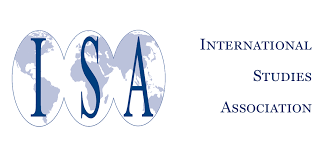

ISA 63rd Annual Convention: A Wider Discipline for a Smaller World
Wed, 30 Mar 2022 - Sat, 02 Apr 2022
Nashville, United States
Organized by: International Studies Association (ISA)
The theme for the 2022 annual meeting is focused on the need for and value of a wider, more inclusive discipline to understand the challenges of a smaller and more interconnected world.
Our world has clearly become smaller, with increasing interconnectedness between actors over greater distances, and a larger number of transnational processes that affect local outcomes. But in a smaller world, many issues central to international studies become more complex. For example, the prospects for conflict and cooperation, managing health pandemics, and how we can adapt to environmental challenges will all depend on interactions between multiple actors, shaped by factors outside their control as well institutions at many different scales.
The complexity of many key issues in international studies highlight the need for a wider discipline to get better answers. We can benefit from further internationalization, with greater international participation in the discipline, and a more diverse set of perspectives and approaches. We also need interdisciplinarity and collaboration by scholars across traditional disciplinary boundaries. For example, understanding the social consequences of the COVID 19 pandemic illustrates how international studies must pay attention to research outside their traditional areas of emphasis such as epidemiology and medicine.
At the same time, social scientists have valuable insights about social behaviour and responses that can inform epidemiological models and public health. They also have expertise on what shapes policy responses to health emergencies and their economic and social outcomes. Likewise, research on tackling environmental challenges can benefit from cooperation between natural and social scientists. As a final example, research on trends in conflict and warfare must consider insights from statistical models of rare event distributions and their implications for risk and the likelihood of observing specific events over a given time interval. Research on the causes of conflict can in turn provide insights on where to look for possible change points in distributions and structural breaks.
We invite proposals for panels and roundtables on topics relevant to the theme, both in the sense of a smaller world and a wider discipline. This could include proposals that deal with aspects relating to “widening” the discipline such as the value of internationalization in research, the consequences of international research collaboration and exchange, as well as analyses of significant barriers to wider, more diverse participation in international studies. We also welcome proposals that deal with interdisciplinary approaches or how collaboration across disciplines can enhance research. Finally, we invite proposals that relate to the concept of a “smaller” world, such as the causes and consequences of greater interconnectedness across various issue areas.











